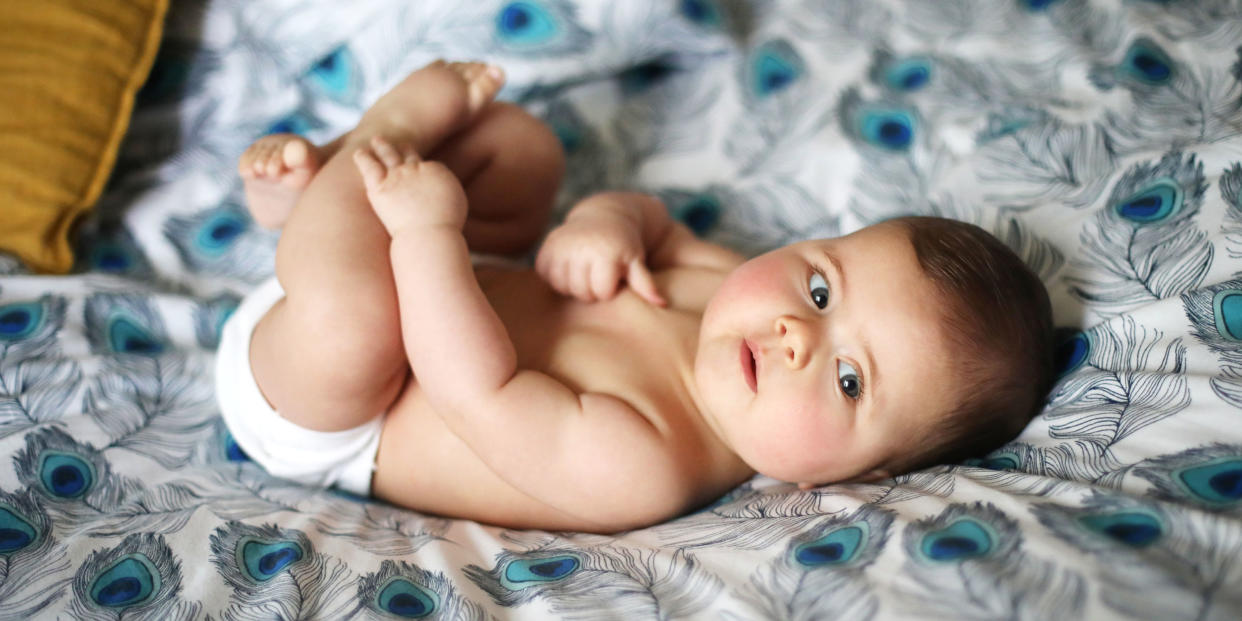Two Doctors Potty-Trained Their Newborn

Amidst the many highs and lows of parenting, diaper-changing tends to be one of the more detested tasks - particularly for environmentalists who cringe every time they send a poop-y disposable diaper, which isn't recyclable, to a landfill. And because reusable ones need to be washed often, they can tax the environment, too, particularly in regions prone to drought.
To reduce waste and make the whole diaper-changing thing go away after diapering their first two children, doctor parents Jeffrey Bender, MD, a pediatric infectious-disease specialist at Children's Hospital in Los Angeles, and Rosemary She, MD, a pathologist/ microbiologist at Keck School of Medicine at the University of Southern California in Los Angeles, teamed up to potty-train their third child days after delivery. Their approach: a technique known as elimination communication.
Elimination communication isn't new - it's how some parents used to deal with numbers one and two before disposable diapers were patented in 1955. Although the practice doesn't appear to be on the rise - Google search volume on the topic has been on the decline since it spiked in 2013 and again in 2014 - Dr. Bender and Dr. She co-authored an editorial on their personal experience forgoing diapers, which was recently published in the medical journal Pediatrics.
Also called natural infant hygiene, the theory behind this diaper alternative is pretty straightforward: Observe your infant’s natural timing, body language, and cues - i.e., they may pee five minutes after nursing or grunt before pooping, according to DiaperFreeBaby.org, a non-profit dedicated to promoting the benefits of elimination communication - to determine when they need to go. Then, hold the baby over a toilet, sink, or mini potty to do their thing while you make noises like "shhhhh" to simulate running water that reinforce bladder or bowel release.
"Contrary to the notion that infants relieve themselves randomly and constantly throughout the day, infants naturally eliminate at predictable times, such as on waking or after feeding," wrote the parents in their editorial - although it's worth noting that some medical experts doubt whether babies can achieve full bladder control before they're 18 months old. (Dr. Bender did not respond to a request for comment.)
Even though the parents behind this editorial are doctors, they're not saying everyone should adopt the early potty-training thing, nor are they out to make fellow moms and dads feel badly for using disposable diapers. After all, elimination communication isn't always a viable option for some parents, including ones who work outside the home and aren't around to read their children's signs all day, and it could add unnecessary stress.
At the end of the day, the way you catch your child's pee and poo is a personal decision, so no shade whether you default to disposable diapers, reusable ones, or find your own way to sidestep your kid's diaper phase, altogether. You doo(-doo) you!
Get all the ~FiTsPiRaTiOn~ directly in your feed. Follow Facebook.com/CosmoBod.
Follow Elizabeth on Twitter and Instagram.
You Might Also Like


